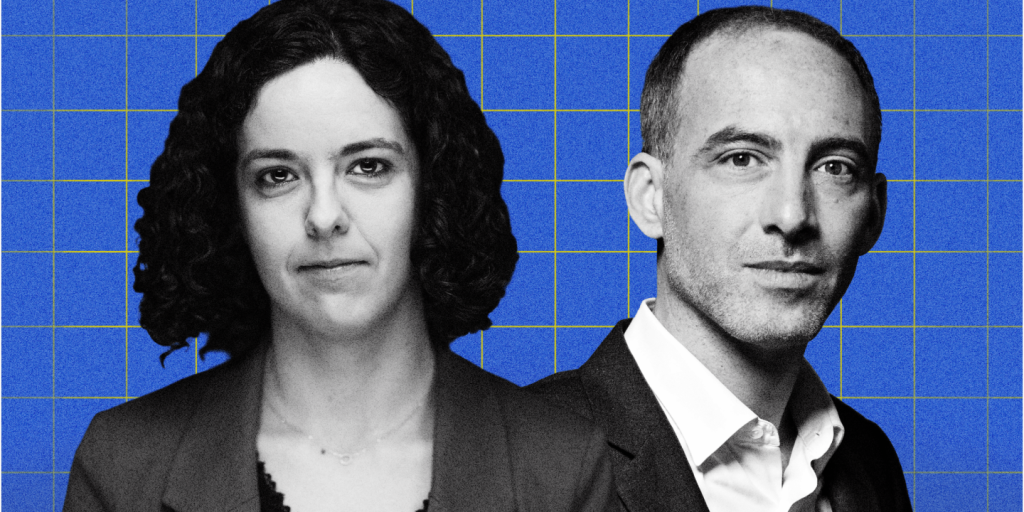Criticism of Raphael Glucksmann from the left is mounting, with Communist and France Insoumise (France Unbowed) party leaders Leon Deffontaines and Manon Aubry both denouncing the Socialist candidate as a “new Hollande”. Deffontaines expressed concern over Glucksmann’s defense of the European Union, stating that it alienates potential left-wing voters who view the EU as a machine that crushes young people. Deffontaines called for a different vision of Europe that combines the radicalism of Jean-Luc Mélenchon with the liberalism of Glucksmann, criticizing the latter’s stance on issues such as pensions, public services, and EU enlargement.
Deffontaines questioned whether Glucksmann truly embodies the left, drawing parallels between the candidate and former President of France, François Hollande. He criticized Glucksmann for advocating for the expansion of the EU into countries where the minimum wage is as low as 200 euros per month, highlighting the potential implications for workers in terms of competition and wage levels. As Glucksmann leads the left-wing candidates and closes in on Valérie Hayer, his positions are coming under increasing scrutiny from within the left.
Manon Aubry, from France Insoumise, also voiced her disapproval of Glucksmann’s stance on retirement age, particularly his opposition to a universal retirement age of 60. The program of the New Popular Union, Ecological and Social (Nupes) alliance, which was signed in spring 2022 for the upcoming legislative elections, includes a provision to restore the right to retire at 60 with full benefits. Aubry criticized Glucksmann and the Socialist Party for departing from these commitments and accused them of dismantling the progress made through the Nupes platform.
Aubry accused Glucksmann and the PS of betraying the principles of the Nupes coalition, which had collectively agreed to certain measures such as maintaining retirement at 60 and deviating from the European energy market. She likened Glucksmann’s positions to a resurrection of Hollande’s policies, referencing the former president’s tenure and its perceived failures. With the European elections approaching in a month, the critique from within the left is indicative of the growing divide among different left-wing factions regarding the direction and objectives of the current campaign.
The tensions within the left highlight differing perspectives on the role of the European Union, social policies, and economic issues among various leftist parties and candidates. Deffontaines and Aubry’s criticisms of Glucksmann underscore the challenges facing the left in presenting a united front and coherent vision to voters ahead of the elections. The debate around Europe, pensions, and other key issues is shaping the discourse within the left and may impact the overall performance of left-wing candidates in the upcoming European elections.
The criticism directed at Glucksmann from his left-wing counterparts reflects broader debates within the left regarding the direction of the movement, policy priorities, and the relationship with the European Union. As the election approaches, these internal divisions may complicate efforts to present a unified platform and message to voters, potentially affecting the electoral outcomes and the representation of left-wing parties in the European Parliament. The differing perspectives within the left underscore the complexities and challenges of navigating the political landscape and building consensus among diverse ideological currents.


